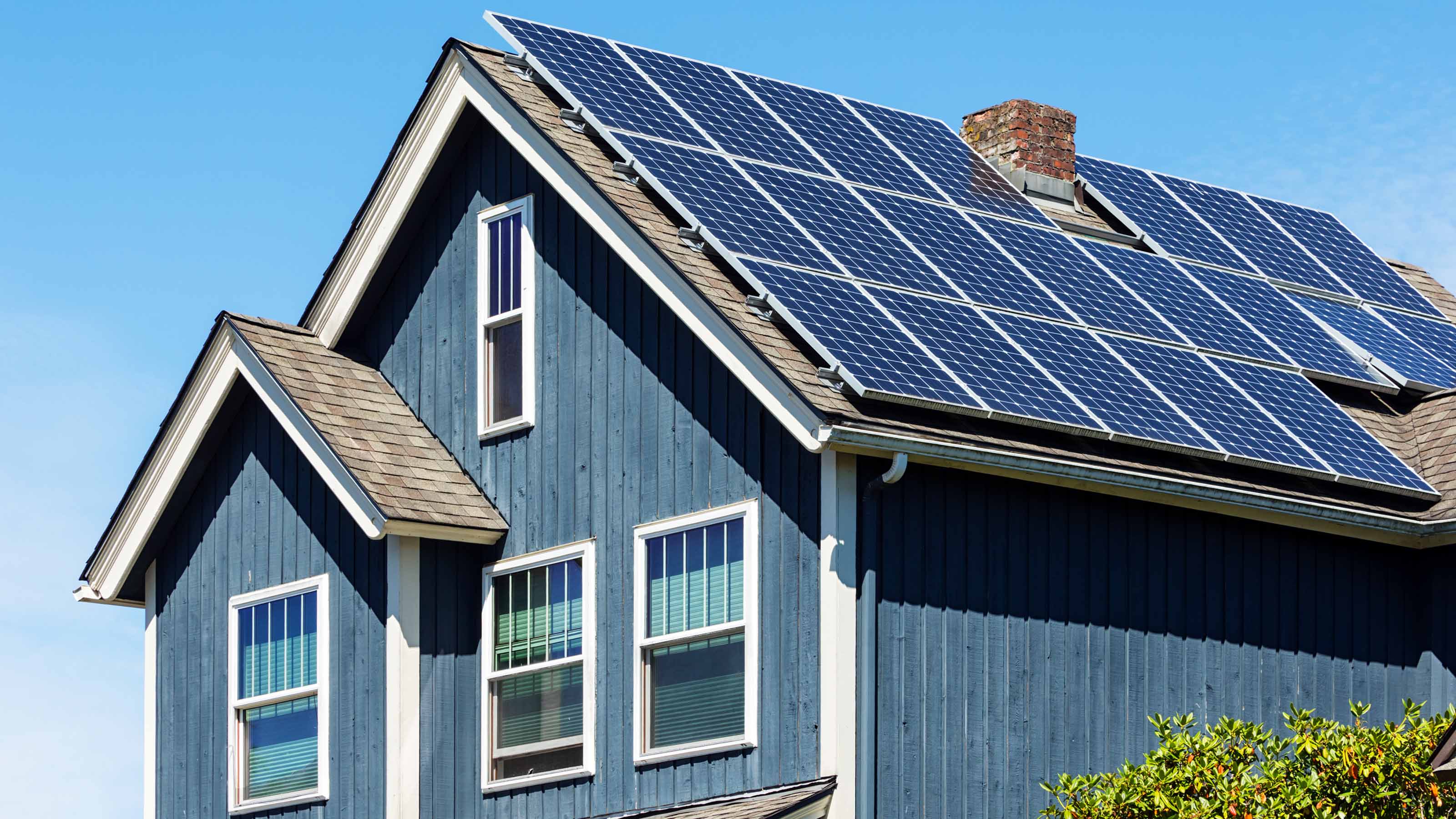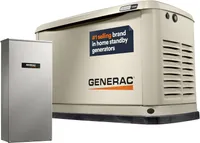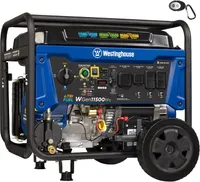Prepping for Power Outages: How to Keep Comfortable Amid Strong Storms
Power outages happen at any time. Use these tips to keep comfortable when they occur.

Profit and prosper with the best of Kiplinger's advice on investing, taxes, retirement, personal finance and much more. Delivered daily. Enter your email in the box and click Sign Me Up.
You are now subscribed
Your newsletter sign-up was successful
Want to add more newsletters?

Delivered daily
Kiplinger Today
Profit and prosper with the best of Kiplinger's advice on investing, taxes, retirement, personal finance and much more delivered daily. Smart money moves start here.

Sent five days a week
Kiplinger A Step Ahead
Get practical help to make better financial decisions in your everyday life, from spending to savings on top deals.

Delivered daily
Kiplinger Closing Bell
Get today's biggest financial and investing headlines delivered to your inbox every day the U.S. stock market is open.

Sent twice a week
Kiplinger Adviser Intel
Financial pros across the country share best practices and fresh tactics to preserve and grow your wealth.

Delivered weekly
Kiplinger Tax Tips
Trim your federal and state tax bills with practical tax-planning and tax-cutting strategies.

Sent twice a week
Kiplinger Retirement Tips
Your twice-a-week guide to planning and enjoying a financially secure and richly rewarding retirement

Sent bimonthly.
Kiplinger Adviser Angle
Insights for advisers, wealth managers and other financial professionals.

Sent twice a week
Kiplinger Investing Weekly
Your twice-a-week roundup of promising stocks, funds, companies and industries you should consider, ones you should avoid, and why.

Sent weekly for six weeks
Kiplinger Invest for Retirement
Your step-by-step six-part series on how to invest for retirement, from devising a successful strategy to exactly which investments to choose.
Tens of millions of people were left in the dark when power outages shut down portions of Spain, Belgium and Portugal in April. Then, a few days later, Bali in Indonesia also experienced a widespread outage.
These events were a reminder that the grid systems used to transmit our power are fragile due to age, increased load demand and climate change.
When the power goes out, it might not seem like a big deal for many. However, if you need power for medical devices, like oxygen concentrators, or you need a cool environment given your health conditions, then it takes on an elevated sense of importance.
From just $107.88 $24.99 for Kiplinger Personal Finance
Become a smarter, better informed investor. Subscribe from just $107.88 $24.99, plus get up to 4 Special Issues

Sign up for Kiplinger’s Free Newsletters
Profit and prosper with the best of expert advice on investing, taxes, retirement, personal finance and more - straight to your e-mail.
Profit and prosper with the best of expert advice - straight to your e-mail.
To prepare your home for a possible power outage, here are a few things to consider.
Prevent power outages with a home generator
A whole home generator can help you bridge the gap between when a power outage happens and your utility turns it back on.
Some of the best generators run on gasoline or propane. That means when the fuel runs low, you can refill it and run it continuously.
They're not cheap by any means, but you can find great options through your local hardware store or online:
Generac Guardian 14kW Home Standby Generator with 200 Amp Transfer Switch
This generator is capable of cranking out 14,000 watts without the loud operation associated with many generators. And with Wi-Fi connectivity, you can monitor your generator's performance from anywhere.
It's important to note home generators are not a one-size-fits-all solution. Ideally, you'll want to consider the appliances you need powered during a blackout, then calculate the wattage to ensure the generator can handle your home's demand.
Moreover, costs could play a role in whether you want to pull the trigger. Home Advisor notes whole home generators run from $1,538 to $8,821, with power capacity, brand, installation costs and permits being price drivers.
You'll also want to conduct maintenance on it annually or consult a pro to do so. Ideally, you'll want it inspected before the winter or summer months, when inclement weather becomes a more frequent visitor.
If your area isn't prone to many power outages but you want to have something prepared in case it does go out, consider a portable generator.
Westinghouse 14500 Peak Watt Tri-Fuel Home Backup Portable Generator
This generator is ideal for larger homes. It will keep the power on for up to 19 hours with the 9.5-gallon fuel tank.
Portable generators are great for powering everything from small devices to appliances. And you won't have to fork over a ton of money or do extensive construction to accommodate them.
Go green, gain energy independence

Another way to keep the lights on is to harness the power of the sun. With solar panels, battery backups and generators, they generate electricity from the sun and convert it to AC electricity, which you can use to power items in your home when the lights are out.
Installing a solar system is the most permanent and most expensive solution. Energy Sage estimates the cost to install a system is $29,000, but there are tax incentives which lower overall costs.
To demonstrate, the Federal Solar Energy Credit gives you 30% back of your total solar system cost to apply to your taxes. Using the $29,000 total cost estimate from Energy Sage, it means you could save up to $8,700 with this federal tax credit.
Your state might also have separate incentives to lower the total costs more. To demonstrate, New York offers homeowners up to 25% back of their total costs, up to $5,000 with the New York Solar Energy System Equipment Credit.
Moreover, with solar panels you gain energy independence.
It means you don't have to rely on the grid as an energy source. However, if you want to keep the power on when an outage occurs, you'll need to have a battery backup, which stores the energy produced by your solar panels. Without a battery, the electricity could go back through the power lines, creating a dangerous situation for utility workers.
These can be expensive, costing on average around $9,000, according to Energy Sage. However, they do qualify for energy tax credits.
If you don't want to fork over tens of thousands of dollars, there are less expensive and more temporary measures available. Portable options and battery backups can keep power available when you need.
EF ECOFLOW Solar Generator DELTA2 with 220W Solar Panel
This portable power station can keep all your appliances on during a power outage and is portable enough to take on camping trips.
Prices depend on capabilities and what you want charged during an outage. If you don't encounter them often and just want a small system to have around in case, portable solar chargers are not bad options to consider.
Other gear for power outages
The Red Cross has a helpful list of items to include when preparing for an outage. Here's a look at some of the essentials:
- Coleman Chiller 48qt Insulated Portable Cooler with Ice Retention & Heavy-Duty Handles - $39.99
- Lepro LED Camping Lanterns Battery Powered - $15.99
- Esky Emergency Hand Crank Radio 7400mWh with 3 LED Flashlight, AM/FM/NOAA Portable Weather Radio with Power Bank Phone Charger - $16.90
- Johnson & Johnson All-Purpose Portable Compact First Aid Kit - $16.51
- Energizer LED Rechargeable Plug-in Flashlights - $58.99
- Portable Neck Fan, Hands Free Bladeless Fan, 360° Cooling Personal Fan - $26.99
- GearLight 2Pack LED Headlamp - $11.99
- INIU Portable Charger, Slimmest 10000mAh 5V/3A Power Bank - $15.99
- Duracell Coppertop AA Batteries with Power Boost Ingredients, 24 Count Pack - $18.64
On the perishables end, have one gallon of water per person per day set aside. It's also ideal to have ample non-perishable food and at least a seven-day supply of any prescriptions you take.
All told, we're entering the season where power outages are a more frequent occurence. Adopting some of these measures can help you remain comfortable and safe, when they happen.
Related content
Profit and prosper with the best of Kiplinger's advice on investing, taxes, retirement, personal finance and much more. Delivered daily. Enter your email in the box and click Sign Me Up.

Sean is a veteran personal finance writer, with over 10 years of experience. He's written finance guides on insurance, savings, travel and more for CNET, Bankrate and GOBankingRates.
-
 Nasdaq Leads a Rocky Risk-On Rally: Stock Market Today
Nasdaq Leads a Rocky Risk-On Rally: Stock Market TodayAnother worrying bout of late-session weakness couldn't take down the main equity indexes on Wednesday.
-
 Quiz: Do You Know How to Avoid the "Medigap Trap?"
Quiz: Do You Know How to Avoid the "Medigap Trap?"Quiz Test your basic knowledge of the "Medigap Trap" in our quick quiz.
-
 5 Top Tax-Efficient Mutual Funds for Smarter Investing
5 Top Tax-Efficient Mutual Funds for Smarter InvestingMutual funds are many things, but "tax-friendly" usually isn't one of them. These are the exceptions.
-
 We Retired at 62 With $6.1 Million. My Wife Wants to Make Large Donations, but I Want to Travel and Buy a Lake House.
We Retired at 62 With $6.1 Million. My Wife Wants to Make Large Donations, but I Want to Travel and Buy a Lake House.We are 62 and finally retired after decades of hard work. I see the lakehouse as an investment in our happiness.
-
 I'm an Opportunity Zone Pro: This Is How to Deliver Roth-Like Tax-Free Growth (Without Contribution Limits)
I'm an Opportunity Zone Pro: This Is How to Deliver Roth-Like Tax-Free Growth (Without Contribution Limits)Investors who combine Roth IRAs, the gold standard of tax-free savings, with qualified opportunity funds could enjoy decades of tax-free growth.
-
 I'm a Real Estate Investing Pro: This Is How to Use 1031 Exchanges to Scale Up Your Real Estate Empire
I'm a Real Estate Investing Pro: This Is How to Use 1031 Exchanges to Scale Up Your Real Estate EmpireSmall rental properties can be excellent investments, but you can use 1031 exchanges to transition to commercial real estate for bigger wealth-building.
-
 My Spouse and I Are Saving Money for a Down Payment on a House. Which Savings Account is the Best Way to Reach Our Goal?
My Spouse and I Are Saving Money for a Down Payment on a House. Which Savings Account is the Best Way to Reach Our Goal?Learn how timing matters when it comes to choosing the right account.
-
 The High Cost of Sunshine: How Insurance and Housing Are Reshaping Snowbird Living
The High Cost of Sunshine: How Insurance and Housing Are Reshaping Snowbird LivingThe snowbird lifestyle is changing as insurance and housing costs climb. Here’s how retirees are adapting and where they’re choosing to go.
-
 How to Turn Your 401(k) Into A Real Estate Empire — Without Killing Your Retirement
How to Turn Your 401(k) Into A Real Estate Empire — Without Killing Your RetirementTapping your 401(k) to purchase investment properties is risky, but it could deliver valuable rental income in your golden years.
-
 We're 62 With $1.4 Million. I Want to Sell Our Beach House to Retire Now, But My Wife Wants to Keep It and Work Until 70.
We're 62 With $1.4 Million. I Want to Sell Our Beach House to Retire Now, But My Wife Wants to Keep It and Work Until 70.I want to sell the $610K vacation home and retire now, but my wife envisions a beach retirement in 8 years. We asked financial advisers to weigh in.
-
 We Inherited $250K: I Want a Second Home, but My Wife Wants to Save for Our Kids' College.
We Inherited $250K: I Want a Second Home, but My Wife Wants to Save for Our Kids' College.He wants a vacation home, but she wants a 529 plan for the kids. Who's right? The experts weigh in.


